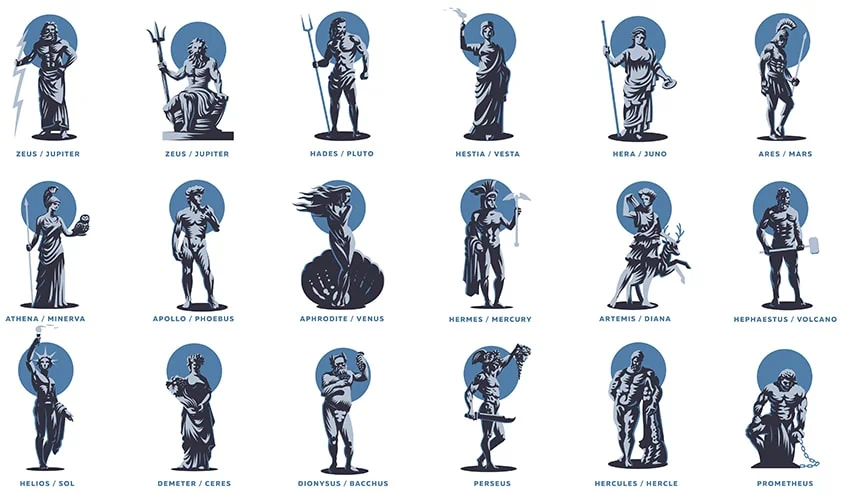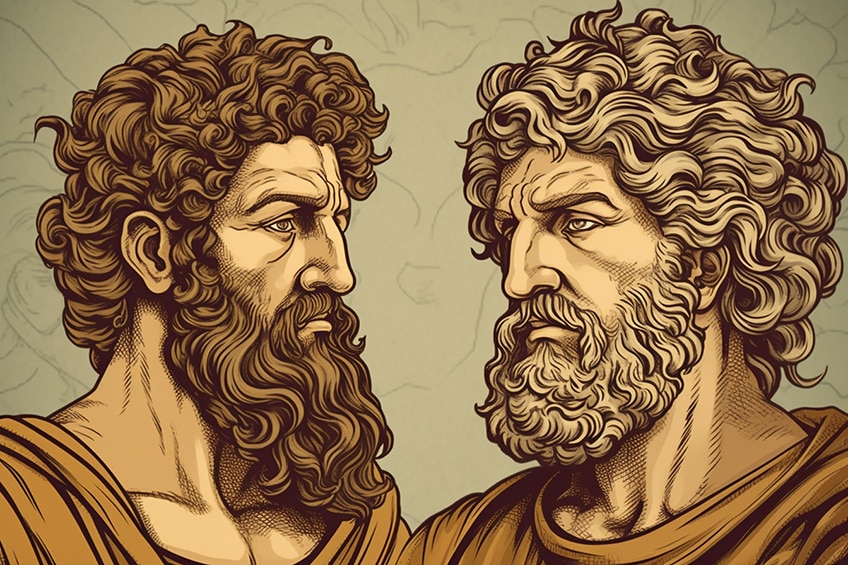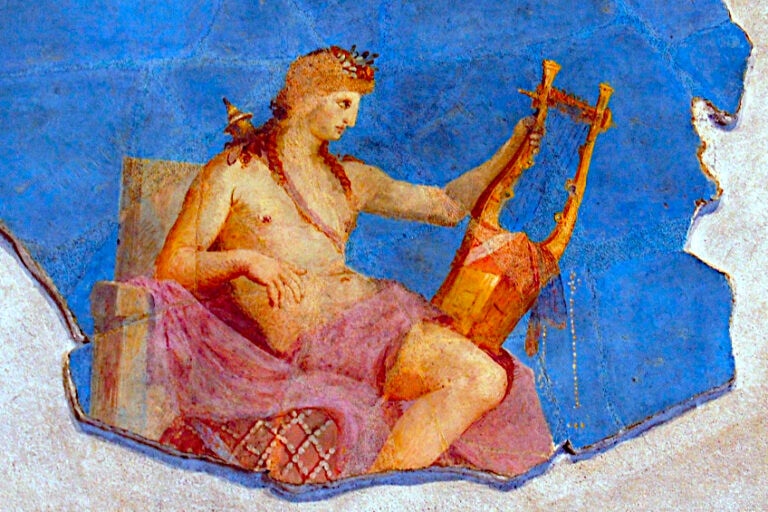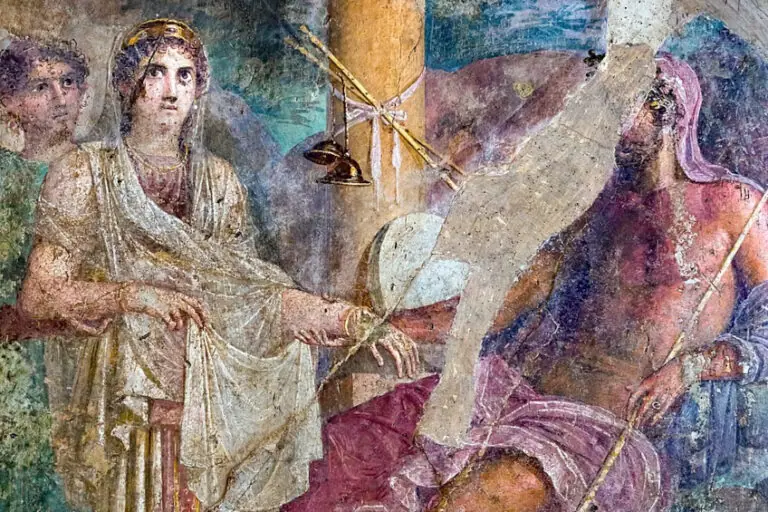Greek vs. Roman Gods – Complete List and Differences
Greek and Roman mythology are rich with a pantheon of gods and goddesses. While many of their stories and attributes are similar, their names are often different. This blog post will explore the Greek and Roman names of some of the most well-known gods and goddesses and the reasons behind these name variations.
Main Differences of Roman and Greek Gods in a Nutshell:
- Name: Greek gods have Greek names while Roman gods have Roman names.
- Origin: Greek gods originated from Greek mythology while Roman gods originated from Roman mythology.
- Personality: Greek gods were often portrayed with human flaws and emotions while Roman gods were depicted as more stoic and dignified.
- Appearance: Some of the Greek gods had different physical appearances than their Roman counterparts.
- Domain: While some Greek and Roman gods share the same domain, there are also differences in the specific domains assigned to each deity in the two mythologies.
- Worship: The way Greek and Roman gods were worshipped and celebrated differed due to differences in culture and tradition.
- Influence: Greek mythology had a significant influence on Roman mythology, resulting in some overlap between the two pantheons.

Greek vs. Roman God Names Overview Table
| Greek Name | Roman Name | God/Goddess of | Symbols |
|---|---|---|---|
| Apollo | Apollo | Sun, Music, Prophecy | Lyre, Bow and Arrow, Laurel Wreath |
| Ares | Mars | War and Violence | Spear, Helmet, Shield |
| Aphrodite | Venus | Love and Beauty | Doves, Roses, Seashells |
| Artemis | Diana | Hunting and Wild Animals | Bow and Arrow, Crescent Moon, Deer |
| Cronus | Saturn | Harvest and Time | Scythe, Hourglass, Serpent |
| Demeter | Ceres | Agriculture and Fertility | Cornucopia, Wheat, Poppy |
| Dionysus | Bacchus | Wine and Theater | Grapes, Wine Cup, Ivy |
| Eros | Cupid | Love and Desire | Bow and Arrow, Wings, Heart |
| Gaia | Terra | Earth and Nature | Fruits, Animals, Trees |
| Hades | Pluto | Underworld and Wealth | Helm of Darkness, Cerberus, Cypress |
| Hephaestus | Vulcan | Fire and Forge | Hammer, Anvil, Tongs |
| Hera | Juno | Marriage and Childbirth | Peacock, Cow, Pomegranate |
| Heracles | Hercules | Strength and Heroism | Club, Lion Skin, Bow and Arrows |
| Hermes | Mercury | Travelers, Thieves, and Commerce | Caduceus, Winged Sandals, Winged Hat |
| Helios | Sol | Sun and Light | Chariot, Sun Disk, Rays |
| Hypnos | Somnus | Sleep and Dreams | Poppy, Horn, Butterfly Wings |
| Odysseus | Ulysses | Intelligence and Cunning | Bow and Arrows, Trojan Horse, Sirens |
| Pan | Pan | Nature and Shepherds | Goat, Pan Flute, Nymphs |
| Persephone | Proserpina | Spring and Queen of the Underworld | Pomegranate, Torch, Spring Flowers |
| Poseidon | Neptune | Sea and Earthquakes | Trident, Dolphin, Horse |
| Rhea | Ops | Fertility and Motherhood | Cornucopia, Fruits, Flowers |
| Selene | Luna | Moon and Night | Moon, Crescent, Stars |
| Zeus | Jupiter | Sky and Thunder | Thunderbolt, Eagle, Oak Tree |
| Uranus | Uranus | Sky and the Heavens | Starry Sky, Universe, Celestial Bodies |
| Athena | Minerva | Wisdom, Crafts, and Warfare | Owl, Shield, Spear |
| Eos | Aurora | Dawn and the Morning | Rose Fingers, Saffron Robes, Wings |
| Nike | Victoria | Victory and Triumph | Palm Branch, Wreath, Trophy |
Why do Have Greek Gods and Roman Gods Different Names?
The differences in names between the Greek and Roman gods can be traced back to the fact that the Romans were heavily influenced by Greek culture and mythology. When the Romans conquered Greece, they adopted many aspects of Greek society, including their gods and goddesses. However, they also believed in their own gods and had their own religious beliefs, so they gave the Greek gods Latin names that reflected their own culture and beliefs. For example, the Greek god Zeus became known as Jupiter in Roman mythology.
Over time, as the characteristics and stories of the gods evolved, the names of the gods also evolved, leading to further variations between the Greek and Roman versions. In some cases, the differences in names reflected differences in the stories and attributes of the gods. For example, the Greek goddess of love, Aphrodite, was known as Venus in Roman mythology. While both goddesses were associated with love and beauty, Aphrodite was known for her seductive powers, while Venus was seen as a more motherly figure.
The different names of the Greek and Roman gods reflect the rich and complex histories of these two civilizations and the ways in which they both influenced and diverged from each other over time.
Frequently Asked Questions
Did the Romans Believe in the Same Gods as the Greeks?
The Romans believed in many of the same gods and goddesses as the Greeks, but they gave them different names and often had slightly different myths and rituals associated with them. This was due to the fact that the Romans borrowed heavily from Greek mythology and religion, but adapted it to their own cultural and religious practices. For example, the Roman god Jupiter was equivalent to the Greek god Zeus, and the Roman goddess Venus was equivalent to the Greek goddess Aphrodite. However, while the Greek gods were often depicted as idealized humans, the Roman gods were more often depicted as having human-like qualities but also animalistic features.
How did the Romans adopt Greek mythology?
The Romans adopted Greek mythology through a process known as syncretism, which involved merging the beliefs and practices of different cultures. The Romans were heavily influenced by Greek culture and religion, so many of their gods and goddesses were based on Greek deities.
Did the Romans worship their own gods or the Greek gods?
The Romans worshiped both their own gods and the Greek gods, but they often adapted the Greek gods to fit their own cultural and religious practices. The Romans believed that their gods and goddesses had specific responsibilities and powers, and they would often make offerings and sacrifices to them in order to gain their favor.
What is the difference between Greek and Roman gods?
The difference between Greek and Roman gods lies in their names, myths, and sometimes their physical appearance. The Romans adopted many of the Greek gods and goddesses but gave them different names and adapted their myths to their own culture.







